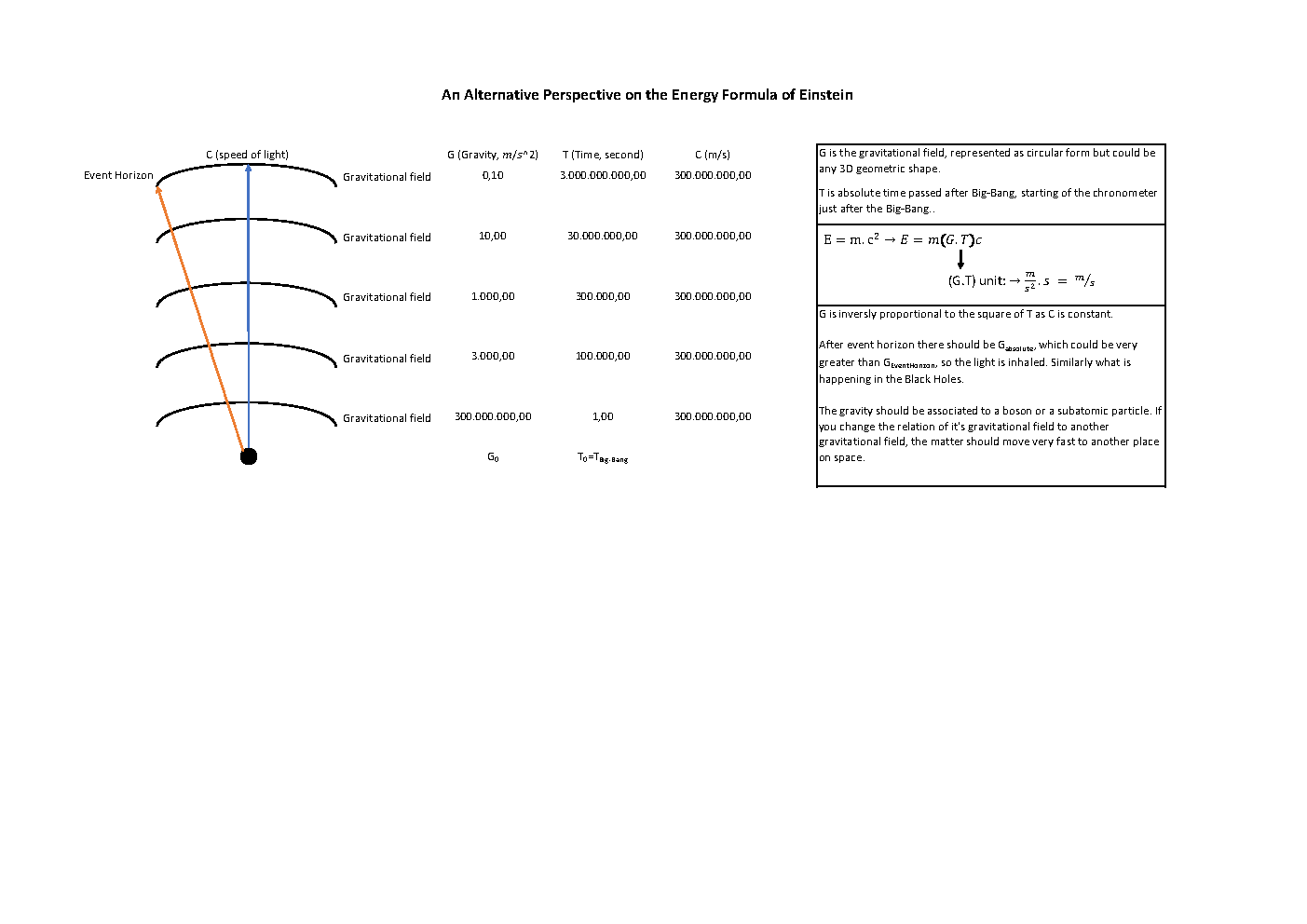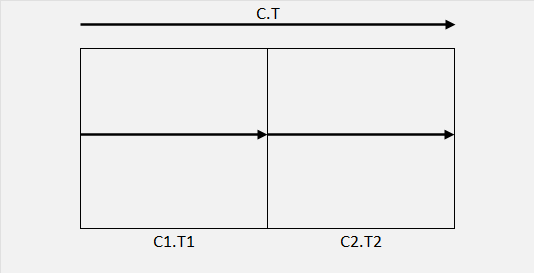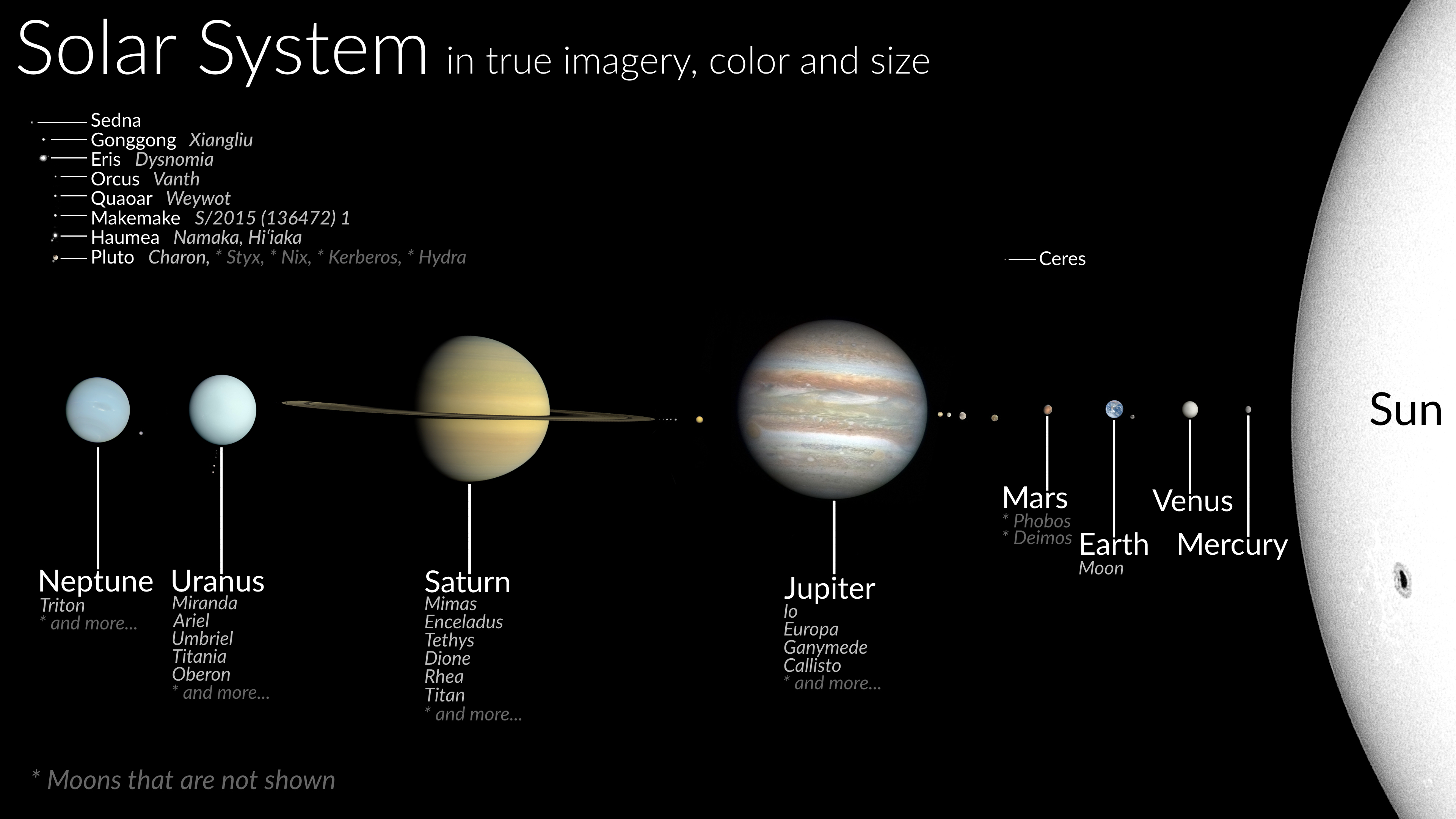Hello again. I'm still on the way to get to a point.
What I'm trying to say is, speed of light should be equal to gravity * time. So the equation should be: C=G.T
As C is constant, if gravity increases, time value decreases. For example in a black hole, the gravity is huge so the time value should be very small. At the event horizon of a black hole, the time value will be equal to zero, so we observe the light as steady, "at the same time" it is inhaled by the black hole's singularity.
Mathematically, where T is zero, G value could be (+ - infinite), So we can assume gravitational field existed before Big Bang. All universe was filled with a vast gravitational field. Then, Big Bang happened, time started to tick on, light started to travel in the space, particles occurred and started to stick on the gravitational fields (which should be continuously being generated as still time elapses).
I consider time value as "time elapsed after Big-Bang", but this is maybe more complicated than counting seconds with a chronometer. When big bang happened there was a huge gravity in space, so the seconds should be passing slower than as of today on Earth. Vice versa, if we go to the outer parts of the space, where the gravity is less, time should be ticking faster.
So if we put gravity and time factor into the energy formula, E=m(G.T)C.






